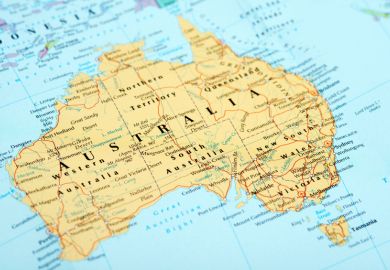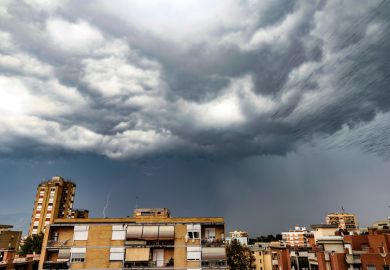Most Australian universities plan to offer something approaching the full on-campus experience this year, as the world reassesses Covid-19 as something it can live with.
Every public university intends to provide in-person classes during the coming academic term. Face-to-face instruction will be the default at most, although lectures will generally remain online.
Remote delivery will be maintained for students stuck overseas or reluctant to be on campus because of health issues. Institutions are also extending work-from-home arrangements for employees who want to avoid crowds.
While many staff are desperate to return to campus, fed up with the isolation of home-based work, others are nervous about catching the virus or transmitting it to vulnerable relatives or friends.
Deakin University said that it would maintain flexible work arrangements, and has updated its infectious diseases leave provisions to cater for staff affected by Covid. But vice-chancellor Iain Martin said that an escalation in on-campus activity would bring the institution back to life.
“Our goal is to deliver as normal an experience as we can, subject to the Covid-19 mitigations that we are all living with,” he said.
Griffith University encouraged remote work and study during its summer term. But staff were due back on campus from 14 February, with in-person classes predominating from mid-March when trimester one begins.
The University of South Australia (UniSA) also asked staff to be “physically present” on campus from 14 February, overturning a previous plan to maintain remote work and teaching as the default until the end of March.
“We are very cognisant of the impact such sustained measures would have on commencing and returning domestic and international students and their UniSA experience, particularly as we approach orientation,” vice-chancellor David Lloyd said.
Australian National University vice-chancellor Brian Schmidt asked staff and students to be “back on campus as often as possible” from 7 February. “The pandemic will remain part of our lives in 2022 but it will no longer rule them. We need to adapt to live with Covid as safely as possible, and we will have to stay on that footing this year.”
Victoria University has adopted a “safety first” approach, initially reserving on-campus delivery for laboratory-based and clinical classes. But it expects most courses to be in-person by late April, when its city sites consolidate in a new 32-storey tower.
Australian universities have varying approaches to immunisation and Covid-19 screening. Griffith has mandated vaccination from 18 February, with unvaccinated people obliged to undertake regular Covid testing if they visit campus.
Griffith is also maintaining its 2021 expectation that staff work on campus at least three days a week – a “rule of thumb” also applied at the universities of Melbourne, South Australia and Canberra.
UNSW Sydney deputy vice-chancellor Merlin Crossley expected flexibility to prevail at most universities, particularly during the first academic term. He said that while not everybody wanted or needed to be on campus, others did – particularly international students and domestic undergraduates.
“Going to university isn’t just about learning something. It’s a life stage, and for the undergraduates, it’s about fledging the nest,” he said.
Professor Crossley said many of the letters UNSW had received during campus lockdown had come not from students but their mothers and fathers. “Parents want their kids to go out and have fun, but they also want them out of the house.”
Register to continue
Why register?
- Registration is free and only takes a moment
- Once registered, you can read 3 articles a month
- Sign up for our newsletter
Subscribe
Or subscribe for unlimited access to:
- Unlimited access to news, views, insights & reviews
- Digital editions
- Digital access to THE’s university and college rankings analysis
Already registered or a current subscriber?








